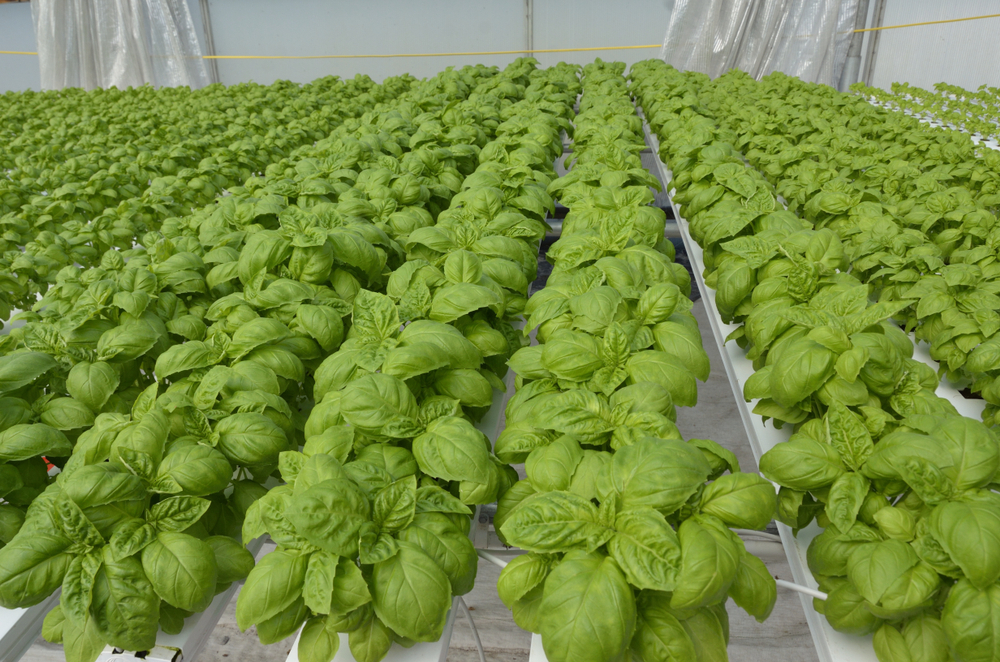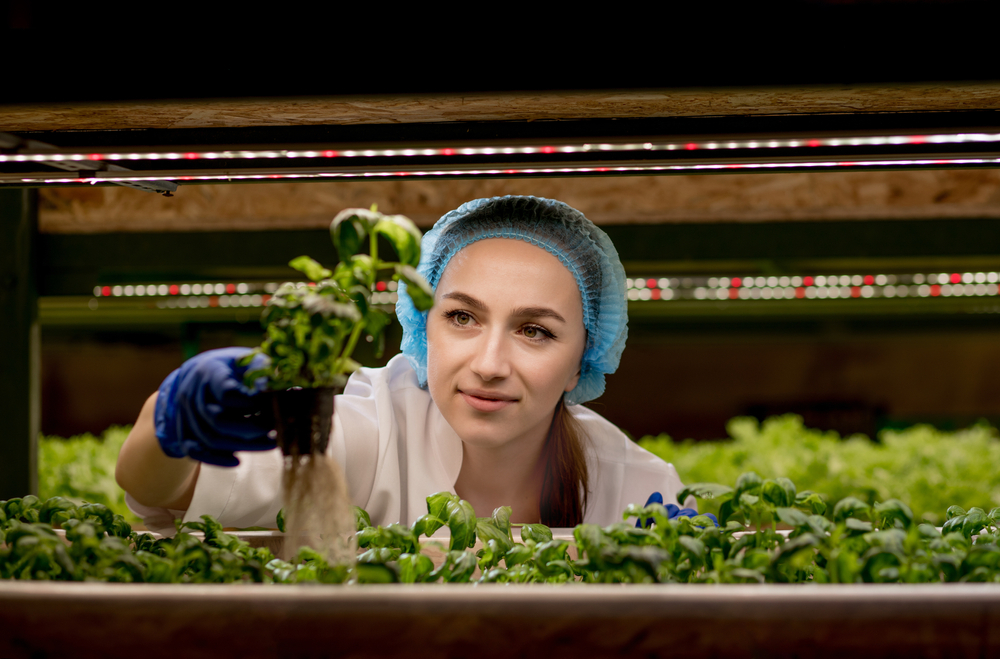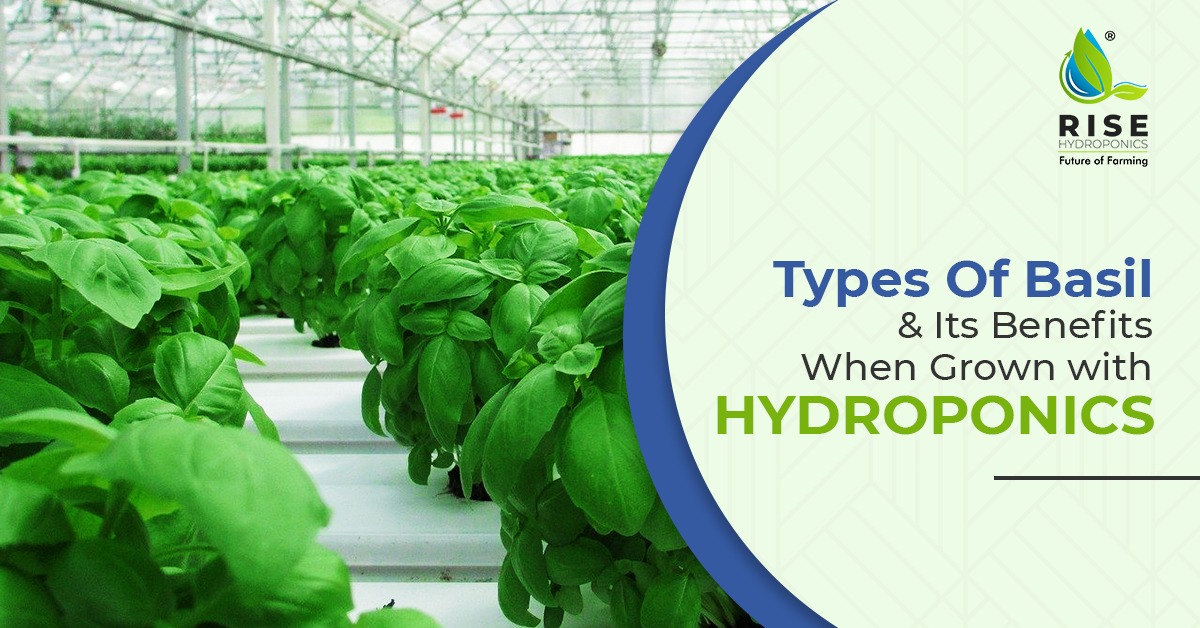Ask any Italian food lover, and they will confess their love affair with Basil. And why not? Basil, after all, is a woody herb that smells amazing, is savory, sweet, and peppery at the same time. It belongs to the mint, thyme, oregano, rosemary, and various other popular herbs.
Some of our favorite herb varieties are dwarf Basil, Thai Basil, Genovese basil, classic sweet Basil, and Red Rubin. While many of you may have tried growing them from cuttings and seeds, indoor gardening and hydroponics have made this herb a year-round feature.
Basil stands out from the other herbs because it loses much of its aroma and flavor when dried. Thus, we must use it fresh. It is easy to grow Basil outdoors, but there are few tips you need to keep in mind regarding the herb’s overall quality, essential oils, aromatics, and flavor.
In this blog, we will discuss the wide varieties of Basil you can grow with hydroponics. Besides, we will also discuss the benefits of hydroponically grown Basil.
Types of Basil you can grow

The hydroponics style of crop farming does exceptionally well for herbs like Basil. That is because Basil can be quickly harvested and is also compact. Multiple hydroponics systems are ideal for growing herbs as the hydroponics system uses a sterile medium of growth. If you have clay pellets or rock wool to anchor your herb and keep them upright, you are good to go.
There are no two ways about people considering Basil a beautiful candidate for hydroponics. That is because it takes very well to this system of cultivation and proliferates. With optimal conditions, you can begin basil harvesting in just 28 days using a hydroponics system. But, just like with other plants, some varieties grow better with this soilless farming technique. Some are specialty types, some grow slow, and some grow fast. Let us learn about each of them.
The specialty basils
Many of the specialty basil varieties are ideal for hydroponics farming. These varieties have different shaped leaves, colors and are known for their exciting aromas and flavors.
Greek: Spicy and the Pluto varieties have a spicier flavor. These two have much smaller leaves, are more compact than the Genovese varieties.
Lettuce Leaf: The Tuscany type falls under this category and offers large leaves that resemble lettuce. Plants of this type are complete and compact.
Citrus: This basil type has a mild citrusy and lemony aroma. Leaves have a silvery green color.
Thai/Asian: The Thai/Asian category is a popular one. It is spicier. The basil plant is tall, with large leaves and most of the varieties grow fast.
Purple/Red: these kinds are characterized by purple/red leaves. Dark Opal is known for its ruffled leaves and fast growth, while improved Amethyst offers the classic leaf shape of Genovese Basil.
The large leaf Italian Compact Basil
Rutgers Obsession DMR
This Basil offers excellent resistance against Fusarium and downy mildew. It is compact, features slow bolting, and delivers high yields. The flavor is spicier and earthier than the classic Genovese types.
Slow growing Basils
Improved Genovese Compact:
This one is compact, full, features large cupped leaves, and has the classic aroma.
Everleaf
Everleaf is a highly dense basil variety featuring medium-large leaves. It is known for its consistent growth, cupped leaves, and classic flavor. This type is very slow to bolt.
Prospera Compact
This basil type offers resistance against downy mildew and Fusarium. It is known for its classic aroma, cupped leaves, glossy, and is extensive.
Elidia
This basil kind is a full-plant with consistent growth, features large cupped leaves, and has the classic aroma.
Most hydroponics gardeners prefer the fast-growing basil varieties because of their high and quick yields. But, if you desire to go out of your comfort zone, have patience, and want to grow different kinds of the popular herb, we say go for it. That is because the specialty and the slow-growing varieties are going to be worth your while.
Steps to grow Basil hydroponically

Growing Basil is not difficult at all. But it does require ongoing maintenance and supervision. Here are a few vital tips for success when you are attempting to grow hydroponics Basil.
Proper air circulation
When you grow hydroponic herbs like Basil, ensure that the atmosphere has humidity in healthy amounts. But, also make sure that the air does not become stagnant as that can cause mildew.
Keep circulating the air around your plants. Get an excellent fan to do that; do not let the humidity percentage get higher than 60 percent in your greenhouse.
Spacing
Space your basil plants at least 5-6 inches apart. Keeping such a distance allows for incredible airflow. We recommend applying neem oil if the greenhouse has high humidity. Using neem oil will prevent fungal problems that may spread quickly.
Propagation
The basil plant is propagated from its seeds that you can obtain in pelleted and raw form. For successful germination, maintain warm conditions with 75 degrees Fahrenheit and use Rockwool blocks for propagation. Ensure that the growing media’s surface is not too wet by taking care of the watering needs in the early phases after germination.
Prune with shears
To keep your Basil in top shape, prune it regularly. We recommend daily monitoring since Basil grows too fast, especially if you intend to sell your Basil in the market. Begin pruning after the development of a second leaf node to start the process of branching. Remove dry leaves that have not received enough light. This step ensures that only the healthiest leaves remain. Continue cutting the branches as young Basil matures to keep the plant’s shape even and compact.
Choose the perfect hydroponics solution
Which hydroponics solution works great for Basil? For the herb to thrive, you need a solution that is high in potassium, calcium, and nitrogen.
Right pH for your hydroponics Basil
Besides optimal growing conditions for your Basil, aim for a pH of 5.8- 6.2.
Daily light integral
Basil performs very well with high levels of heat. Thus maintain 12 μ m2 per day. You can go higher on the light integral as well.
Light
Maintain 14 hours of light each day. For people propagating Basil during the winter, you can support your crops with massive LED grow lights. These lights will help provide sufficient light and control ambient temperature.
Benefits of hydroponics Basil
Reduces anxiety and stress
Basil plants function as an adaptogen, as per multiple reports. An adaptogen helps to enhance mental balance and adjust to stress. Evidence also shows that Basil helps the body to cope with various forms of stress.
Aids digestion
Basil has anti-inflammatory effects that work against gastrointestinal conditions like celiac diseases and lactose intolerance. Digestive inflammation swells inside the intestinal wall, allowing toxins to pass through penetrable barriers into the blood.
Fights inflammation
Basil is an excellent anti-inflammatory herb. Inflammation, as you know, is the root cause of every chronic disease. Essential oils in Basil help in cooling down inflammation.
May fight cancer
This plant-based herb can fight against cancer. Some studies have also stated that the phytochemicals in Basil naturally help to prevent cancer.
It has antibacterial properties
Basil does the trick if you are looking for natural ways to boost the immune system or beat off pre-existing infections. The extract from Basil helps in inhibiting bacteria’s resistant strains that are non-responsive to antibiotics.
CONCLUSION
Hydroponics is a great way to grow this warm-weather crop. And, hydroponics Basil tastes so much better than those that grow in soil; because of the liquid fertilizers that provide the much-needed boost. Besides, it is truly unique how this tiny little herb helps fight health issues. We say never underestimate nature’s power. Growing hydroponics Basil is fun, easy, and quick as well. It is one of the best ways to add the freshest flavor to your meals. So, go ahead, plant your Basil and convert your hobby of gardening into profits. Also, if there is anything you would like us to add, then do not forget to comment down below.

